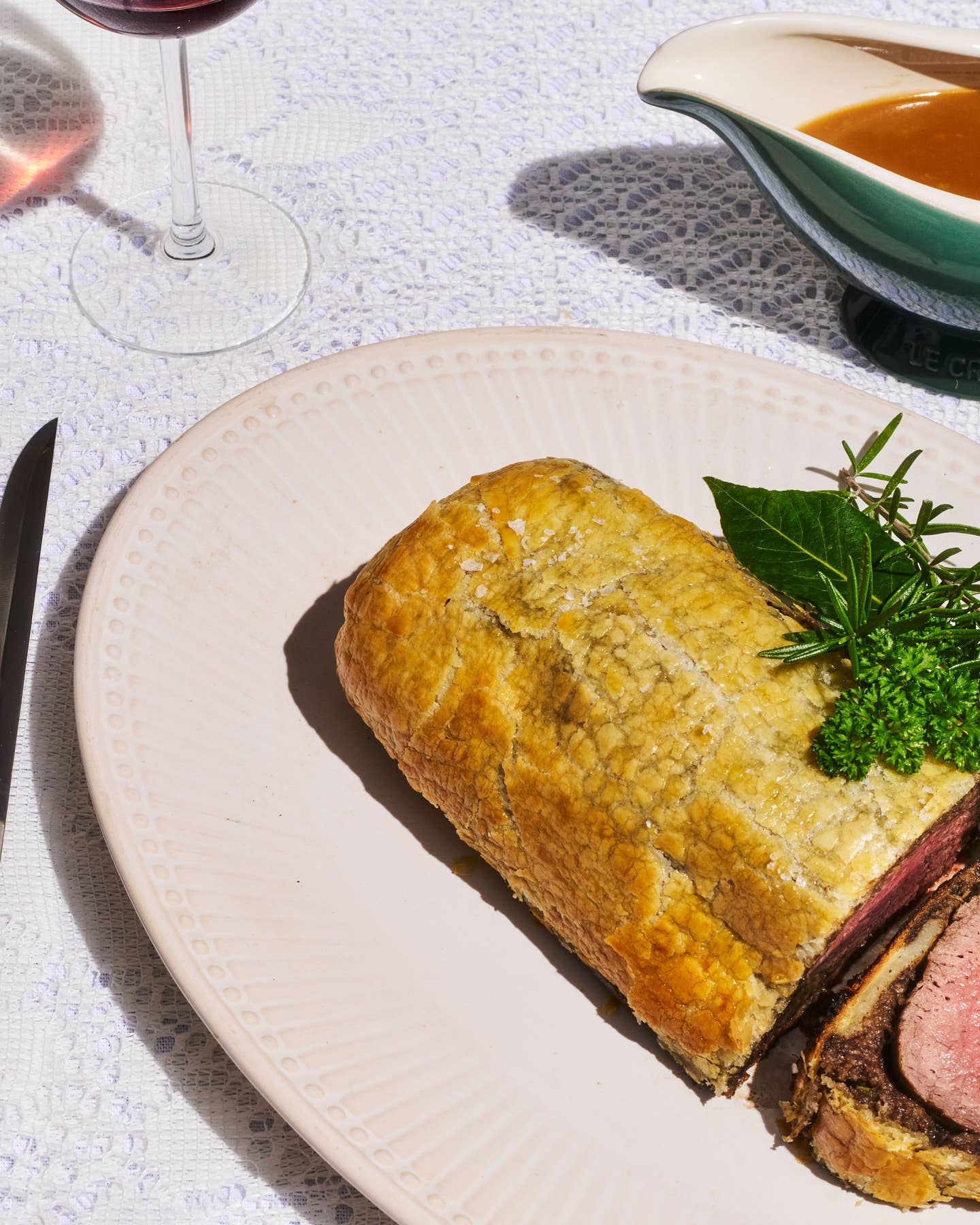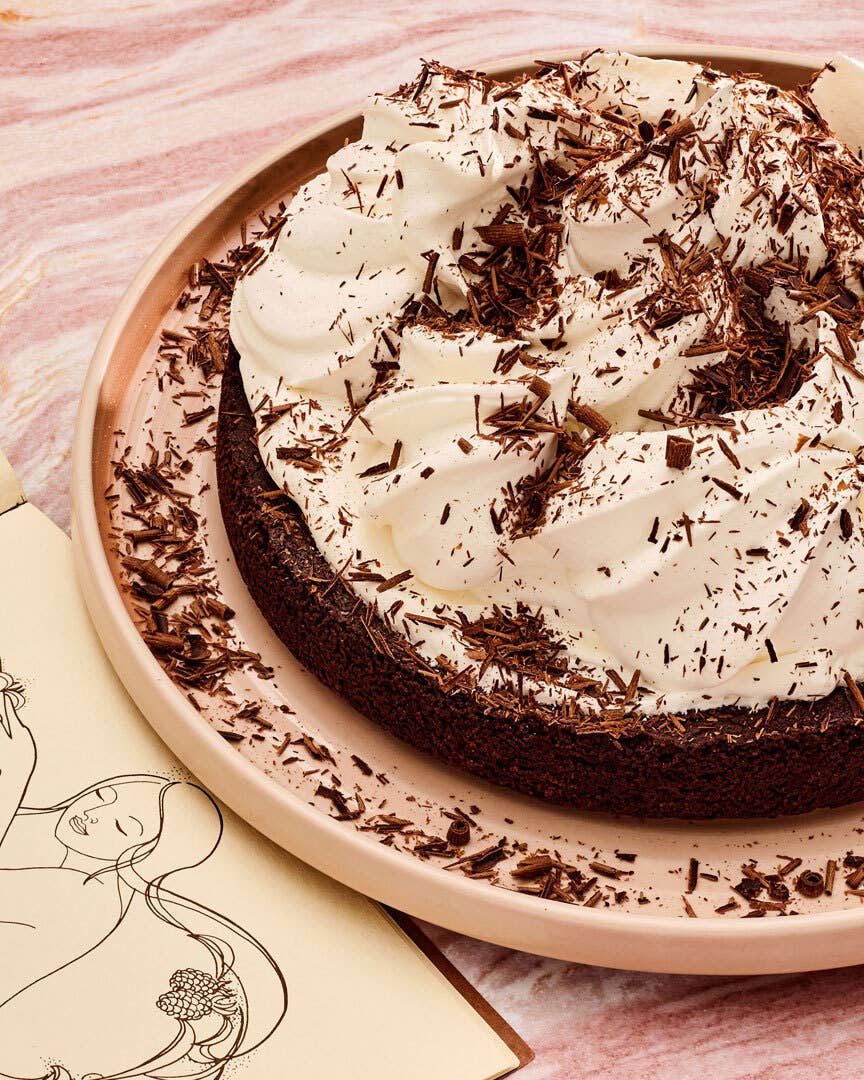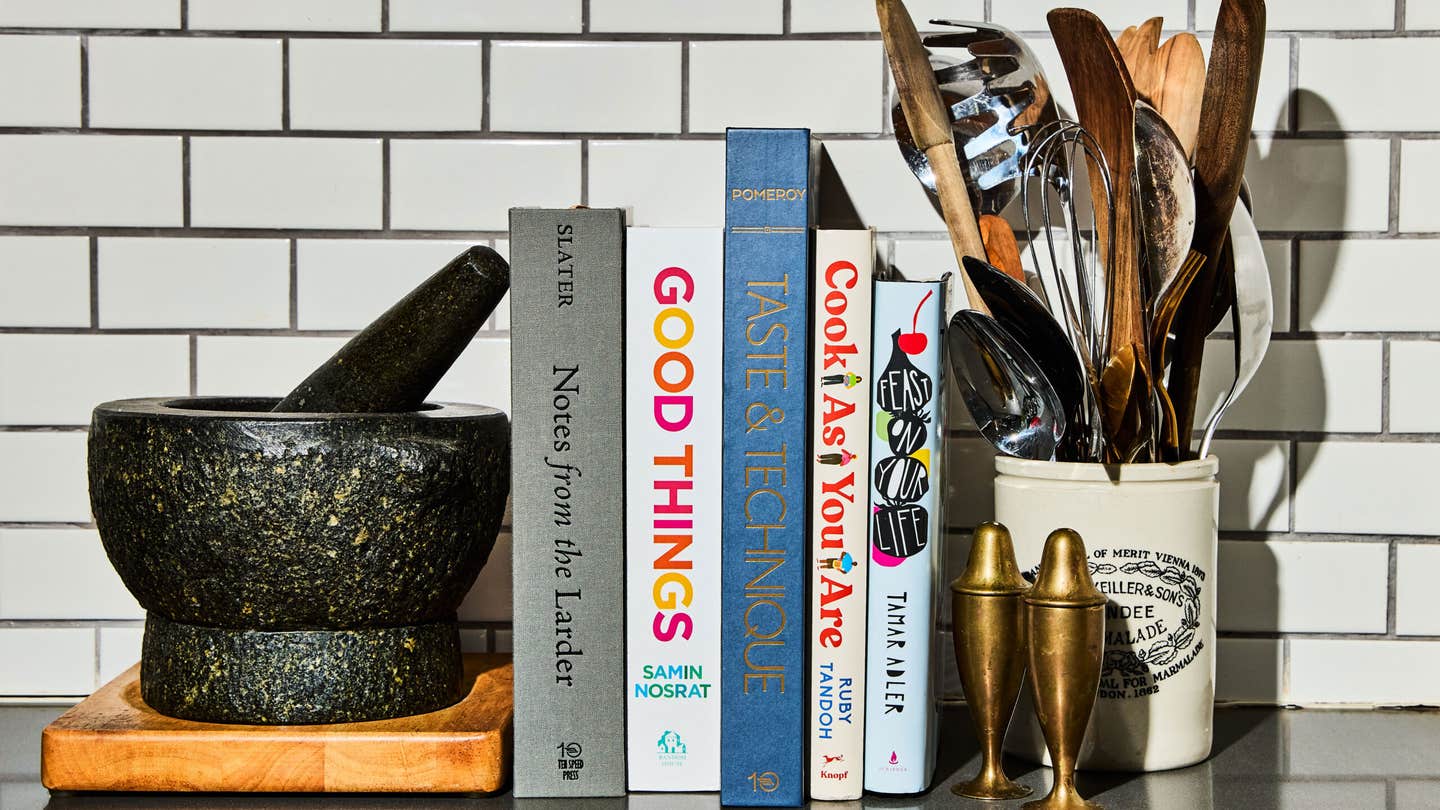
This 90-Year-Old Delicatessen Is Still Where Jewish New Yorkers Get Their Latkes
A love letter to the iconic grocer Zabar’s.
I’ve always loved that Nora Ephron was born, but not raised, in New York City. It’s just one of those little factoids I like to think about from time to time. This person who created iconic stories about Harry meeting Sally, or Tom Hanks and Meg Ryan falling in love over AOL on the Upper West Side—which cemented an idea of the city I’ve loved and lived in for most of my adult life—actually spent her formative years in California, dreaming of getting back to the place where she’d been born.
And there’s this one thing she wrote that I also think about at least once a day—when the subway doesn’t come, or when another favorite old bar closes its doors for good. It’s from a 1984 article Ephron wrote for the New York Times in which she describes a New Yorker’s most basic emotion as “unrequited love.” I think only a person who grew up wanting so badly to be in New York could feel so much like the place doesn’t love them back—simply because it never will in the way they dreamed about. But the reality is still better than anything else. She’s talking about New York City, but she’s also talking about Zabar’s—literally. The article is about her lifelong appreciation for places to go and get bagels and lox, but it diverges into a love letter to the place on Broadway and 80th where you go in for the first time and you’re—well, I’d say baptized, but that doesn’t really fit the theme here. Maybe the experience is more of a bar or bat mitzvah; if you go into Zabar’s—which launches its first cookbook this week after 88 years in business—and you get it, then to you I say mazels, for today you are a New Yorker.
Not all people are born New Yorkers—often, they become New Yorkers. It’s about evolution. Every store that you can just run out to and grab toilet paper or a candy bar, you’ll call a bodega, and that means the influence of the city’s Puerto Rican community has impacted you. You wake up craving chicken and rice with the right amount of spicy red sauce and cooling white sauce. For this, you can thank the people who moved from the Middle East to New York and started setting up little carts along the sidewalk and serving the dish the way they always had.

There are a thousand more examples, but the Jewish influence on the city is a whole other thing. It’s a million little idiosyncrasies, like the very real stereotype that bagels really are a big deal to New Yorkers, and not only those who are members of a synagogue. It doesn’t matter their nationality or religion, bagel opinions in New York can be as contentious as politics. There’s also the way we talk here: I’ve met people whose families came over on the Mayflower who use Yiddish words that I, the grandchild of people who spoke the Eastern European Jewish language before they spoke English, have never even heard. And then there are the landmarks. 92Y is the place you go if you want to hear literary luminaries speak. Lining up on Sundays at Russ & Daughters is when you’ll eavesdrop on some of the best conversations. Barney Greengrass is smoked fish central, but you’d better remember that it’s cash only. And you will drag a friend several blocks to the one place you know that sells Dr. Brown’s Cel-Ray soda even if you don’t like it yourself, but you want them to experience it. There are all of these places, created with the local Jewish community in mind, that have performed an act of mutual assimilation, a blending of cultures, and somehow Zabar’s feels like it’s in the center of it all.
There are a few schools of thought when it comes to the idea of what a New Yorker is. Some will say you have to be born here, but that never made sense to me, because what makes the place great is that it has always been a city for immigrants. Others will say that you earn the title after having a specific experience (getting a cool nickname from the guy who runs the coffee cart on your street, or seeing Law & Order being filmed for the 50th time) or putting in a certain number of years here. I won’t disagree with those points of view, but to me, becoming a New Yorker happens naturally, over time; the city takes you over. It could be when you start ordering a “plain slice” after a lifetime of calling it “cheese pizza,” or when you visit another city and your normal walking pace speeds past nearly everybody else. But most of all, it’s when you realize you’re a person of the world thanks to your experience in the city. Maybe you lived in Chinatown for a few years and can speak a little Cantonese. Or maybe you aren’t Italian but you’ve spent enough time at classic red-sauce joints that you have very strong opinions on what makes a good marinara sauce, something that should be so simple, and yet, some places just don’t get it.
What I love about Zabar’s is you do not have to personally love everything it sells, but you relish in the experience of going to the place because they serve some thing or things that you believe is only perfect if it’s from there. And by falling in love with whatever that is at Zabar’s, you become an expert on it, you tell people that, sure, you could get whitefish or babka elsewhere, but you only get it there. Maybe it’s because you grew up in Manhattan, or because you had some Ephron-inspired vision of shopping there, or simply because you went there once and kept going back every opportunity thereafter. Either way, it’s part of your life the way I don’t think any other place like it—not that there are many examples—could ever be. As one friend of mine put it, after I proposed I’d bring latkes to her Hanukkah party so that she didn’t have to go through the trouble of making them, “Why bother? Just go to Zabar’s. They make the best ones.”

Keep Reading
Continue to Next Story










